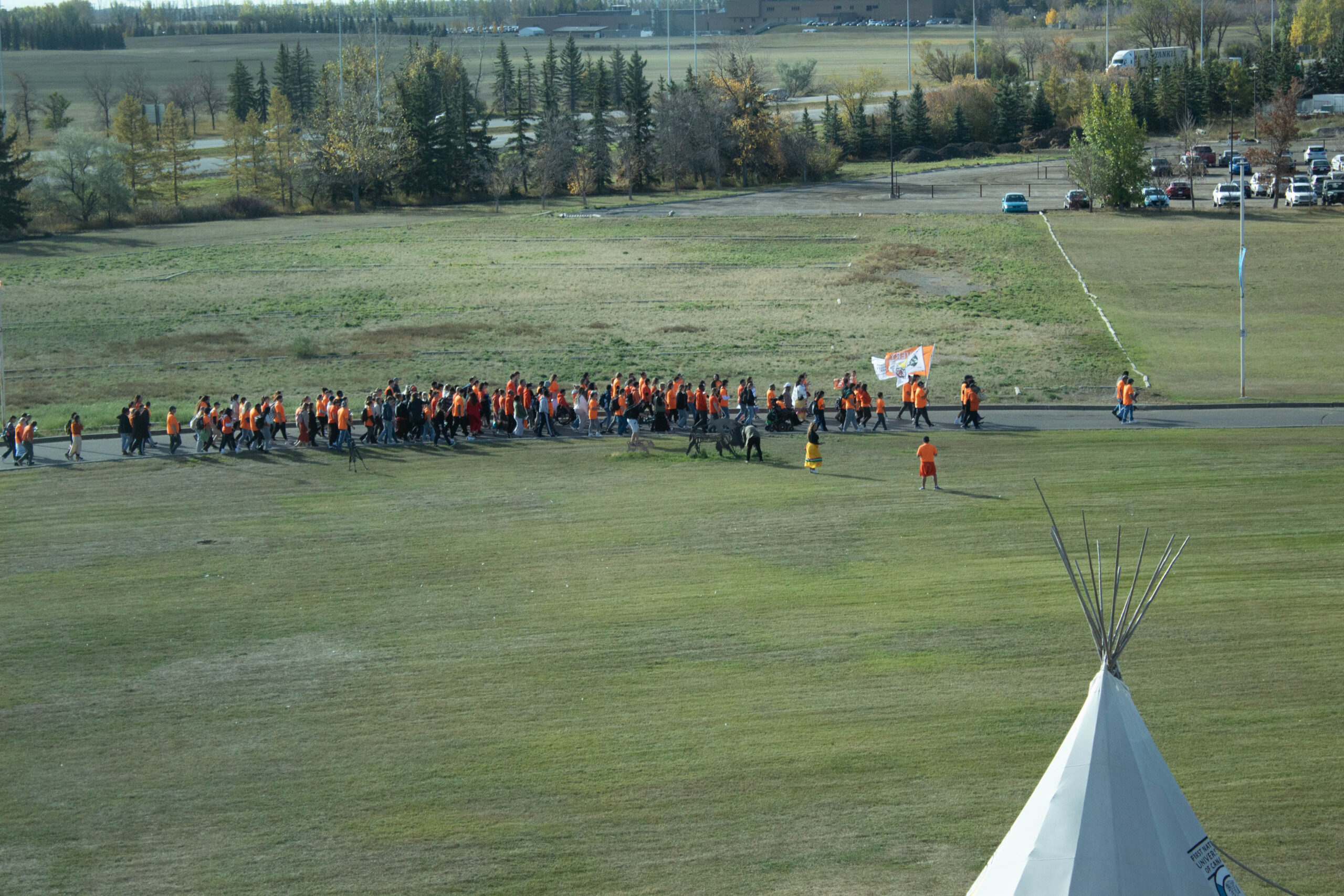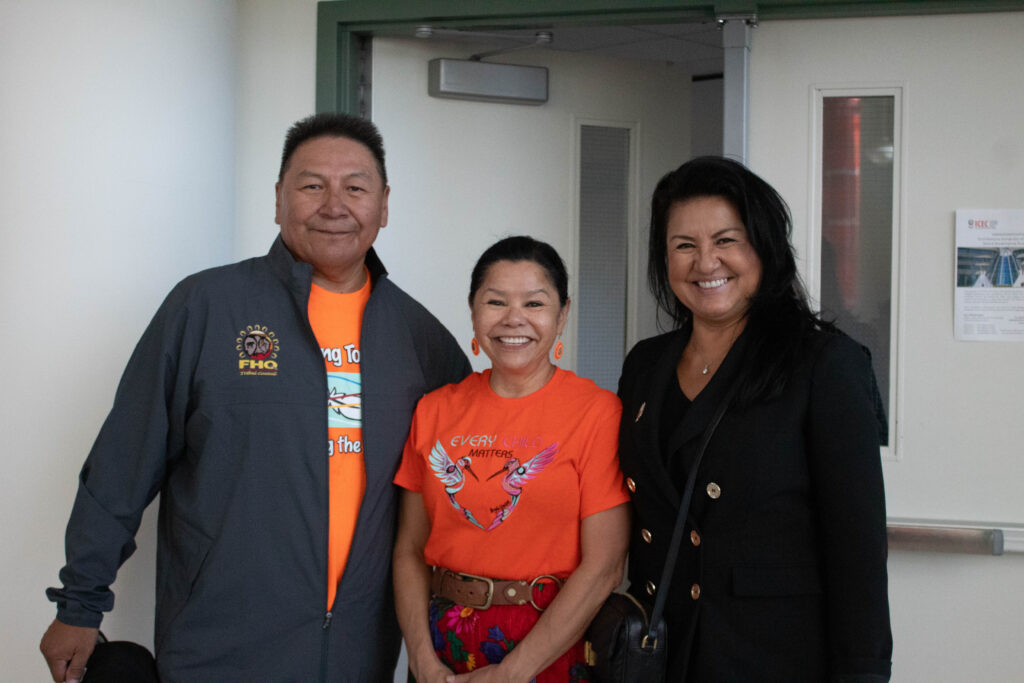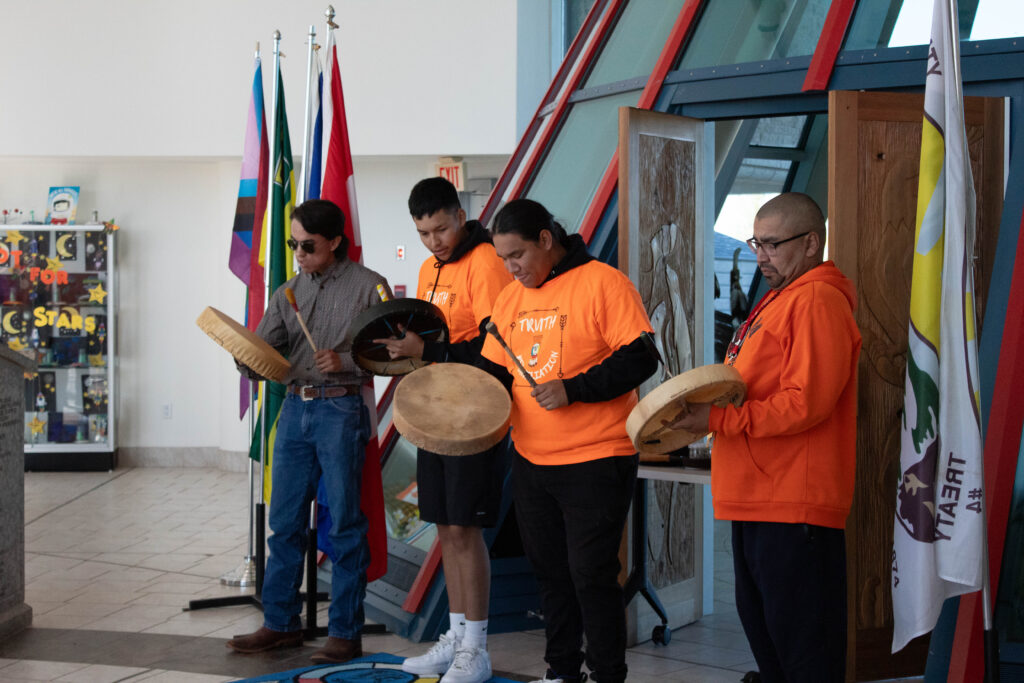
About 100 people gathered today outside the First Nations University of Canada (FNUniv) to participate in a community Smudge Walk. The Walk took all participants around the Regina campus roadway, with the Smudge leading the way, in honour of all the children that never made it home from residential schools. Afterward, tiny children wearing orange shirts watched on with a crowd inside the FNUniv main atrium where a drum group sang an honour song, speakers were in attendance, and a meal was shared with the community.

FNUniv President Dr. Jacqueline Ottmann was the first to speak. She recounted a story about her mushum (grandfather) who managed to escape the George Gordon residential school when he was a little boy. He and a few friends were completely dehydrated when they got back to their homes, only to be found and taken back to the school.
“Canadians ask themselves, ‘Why wasn’t this shared within our history classes? Our social studies classes? Our university classes?’”
“This is part of a Canadian legacy,” Ottmann says, “It’s a dark part of history for Canada.”
Ottmann says days like this are about healing. Although the last residential school in Canada was closed in 1996 here in Saskatchewan, she spoke about the intergenerational trauma that can continue to affect the children, grandchildren, and great grandchildren of those that attended these residential schools.
“Memory of trauma is embedded within our bodies,” she says, “But if you could recognize that this is an intergenerational type of legacy, and that we need to understand these stories, then we can do something about it.”
Chief Mike Starr, of Starblanket Cree Nation, spoke and acknowledged the children that were in the audience and how having an institution like FNUniv, helps to encourage the next generation of Indigenous people to flourish. “First Nations University of Canada is a strong solution to reconciliation, and understanding, and working together, while doing things together in a kindly way, our ancestral way.”
Ottmann agrees.
“I am inspired by all the students that come here, to get their degrees, or their certificates. We have so many amazing programs,” she says.
“I see them as leaders. They are going to help bring health and wellness to the next generations.”

‘Orange Shirt Day’ originates from residential school survivor, Phyllis Jack Webstad. When she was young, her favourite colour was orange. She was gifted a new orange shirt from her grandmother and when she wore it proudly to school, it was taken from her, never to be returned. This movement symbolizes how the identities, language, culture, and traditions were stolen from the Indigenous children that attended residential schools.
To date there are approximately 1,900 unmarked graves that have been found across Canada since the 1970s, most of them children.